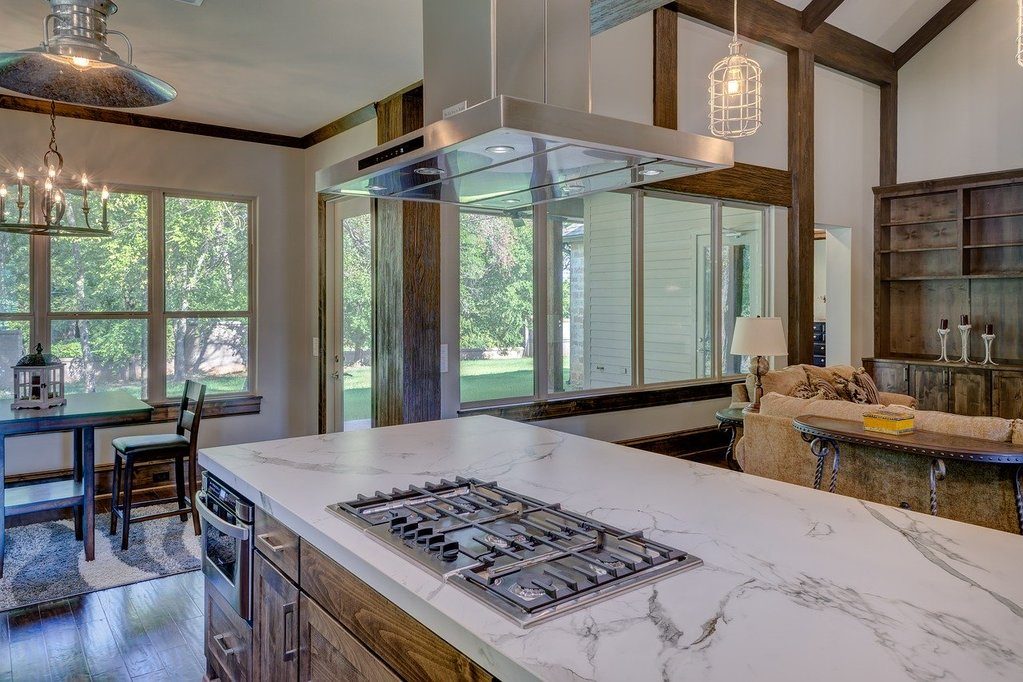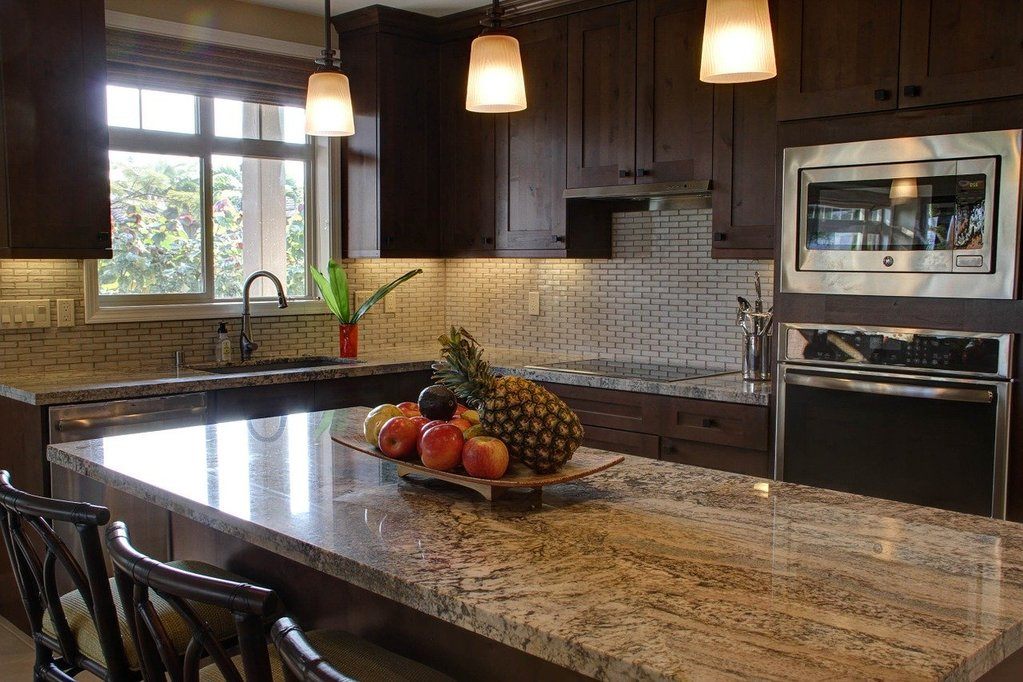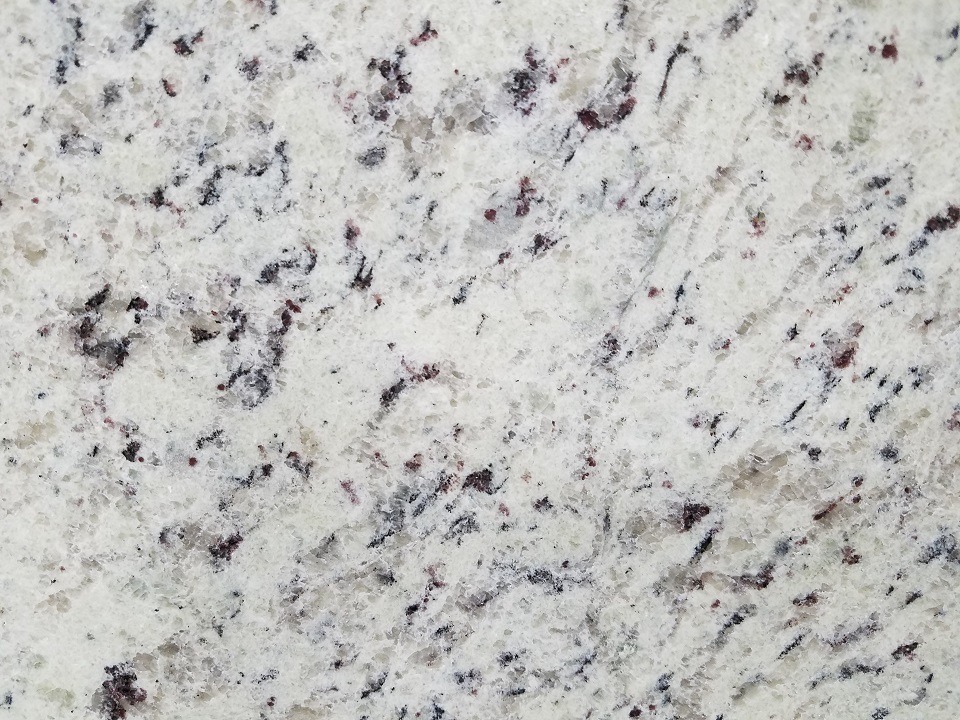What are granite countertops?
The Granite countertop is one of the most popular options in terms of kitchen decor. It is a natural product which has a classic, timeless appeal which enhances the beauty of any kitchen, dining, or bath area. Granite worktops gives a high-quality, and pristine appeal which effectively highlights any room you place it in.
What’s great about granite countertops is that they also offer a variety of over 20 shades to choose from. With so many options, you will surely find the perfect match for your home’s aesthetic.
What makes granite countertops special?
When people discovered granite countertops, they became the rival to marble countertops. Although the latter provided a more sleek look, granite countertops could compete on beauty whilst offering durability as an amazing added feature.
The reliability and durability of granite countertops has gained the trust of many, and for good reason. Granite is a very hard substance that is resistant to scratches. It also protects against heat, so is suitable if placed near a cooking range or open fire. Granite can withstand great heat without being damaged or weakened.

Is it hard to look after a granite countertop?
Maintaining granite is fairly easy, as with most natural stones. Everyday cleaning of a granite countertop will preserve its quality and lustre, making sure that it accentuates your room for years to come.
Be sure to have a cleaner and a rag nearby, to avoid letting liquids stay on the surface for long periods of time. This can lead to staining, which can be tough to remove.
Apart from that, granite countertops are not something you will need to worry about. They are strong and reliable enough to not need your constant attention.
Under normal circumstances, there is very little that you can do to have call for repairs. Unless there is negligence of deliberate destruction, you won’t need to spend too much time nor money for its upkeep.
Once you have it regularly sealed and cleaned a granite worktop will last as long as your home does.
Do you need to seal granite?
This is a popular topic in the natural stone industry. This is because granite is mostly resistant to water, and does not need to be sealed frequently. However, not all granite are the same.
There are some types of granite that present to be more porous, which means that they do need to be sealed more than average.
The general tip is that you should seal your countertops twice a year. This makes sure that you prevent any damage before it occurs, and that your countertops look pristine all year round.
Don’t be afraid to seek expert help.
Granite does vary per material, so there may be some sealers that work better on your specific type of granite. Finding a suitable sealer is vital and is something which will ensure your countertops enjoy a long existence, without needing to be renovated any time soon.

How do I test if my granite countertop needs to be sealed?
Most people only start noticing that their granite countertop needs to be sealed when the damage had already been done. Once they start seeing etching or marks, that is the only moment when they realise that they should have sealed it sooner.
If you now understand just how important it is to take this preventive measure, then we have some useful tips for you. For those that want to find out whether their granite needs to be resealed already, we have an easy way of testing just that.
First is that you should pour a little water onto your countertop. If it absorbs instantly, then your granite is more porous than usual, and it needs to be resealed regularly. If the water absorbs at a slower rate, you will not need to get it sealed that often.
The trick to remember is that the longer it takes to absorb liquids, you will then need to get it sealed often. But if it absorbs fast, it will need to get sealed at a faster and more frequent rate.
Will sealers really protect the surface of my granite countertop?
Yes, sealers are necessary to ensure that your granite countertop is protected from wear and tear. There are actually two types of sealers that both serve the purpose of being the barrier between stains and your countertop.
The first of which is topical sealers that protect the surface of the stone, and it needs to be removed before you apply a new layer. On the other hand, impregnator sealers serve as the barrier from staining beneath the surface, and they will no longer need to be removed if you want to add another layer to it.
How do I take care of my granite countertop?
One of your daily cleaning routines should include cleaning your countertop. Since these are usually placed in kitchens or bathrooms, it is a feature of your house that is frequented and used a lot.
You should have a soft white cloth and a gentle cleaner nearby to give your granite countertop a quick clean. Be sure to opt for a cleaner that is mild and gently, as harsher and more acidic ones can break down your granite countertop.
Any spills should be cleaned immediately. Have paper towels nearby so you can instantly blot it, saving your countertop from staining.
You may use your typical household cleaning products but, as much as possible, get a specific one for your countertops. This is because typical household cleaning products may leave a film on the surface.
If you are looking for something natural that you can DIY, a great alternative is a solution of vinegar and water. This mixture is perfect for removing oil, smudges, and streaking.
In terms of sealing, granite countertops come with its own initial seal, and it is up to you (the owner) to have it resealed. Getting your granite countertops resealed is a step that you definitely should take at least once a year to save from renovation costs brought about by a neglected granite countertop.

Do seams show in granite countertops?
Generally, yes, you will be able to see some seams if you look closely at the granite. However, a good manufacturer and installer will make them as inconspicuous as possible. You won’t really notice the seams until you decide to look for them.
Do granite countertops harbour bacteria?
If health and food safety is your top concern, then you will be pleased to know that granite continues to be used and approved by food and medical institutions. The Centre for Disease Control and Prevention maintains a clean record against granite harbouring bacteria, and there are no reports of anyone contracting any illness from bacteria cultivated in granite.
Keep in mind though that you still need to regularly clean its surface against any bacteria that may be placed upon it.
What are the filled lines in granite slabs?
Granite is even further accentuated by those flowing, filled lines in between. They are filled with colour and flow in random directions. However, those filled lines are not actually granites. These are actually Gneiss o Schists stones.
But you don’t need to worry about the durability of these stones! They undergo a process called resinization to ensure that they are strong enough to be used on countertops. This is a process in which epoxy resin is utilised to fill the weak spots of these stones.
Slabs with visually filled lines are not prone to breakage or cracking once they are installed. Given proper care, they will last a lifetime.

Will granite burn under hot kitchen equipment?
No, granite will not easily burn when you place a hot kitchen pot or pan on it. The best feature that makes granite countertops really stand out is the fact that they are heat-resistant. You can now place any hot kitchen equipment on it without worrying about leaving a lasting mark!
This is why granite countertops is a popular option for those who work in the kitchen frequently. They can be placed near open fire, or have hot pots or pans placed upon it without burning the surface or dulling the finish.
Do granite countertops scratch easily?
You can slice right on your granite countertop without leaving any scratches, however, If you have a slicing board, use it!
For safety reasons, we recommend that you use a cutting board to keep your granite countertops clean and sanitised.
